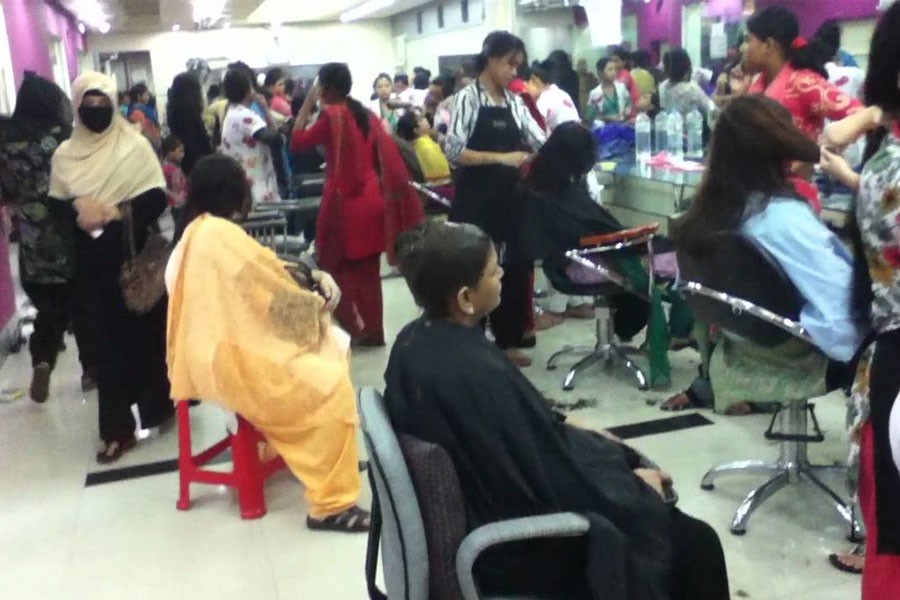Beauty-parlour workers are among the poorly paid labourers in the country who have to work for more than 10 hours a day without any overtime salary, according to a study.
It said a beauty-parlour worker, on average, earns only Tk 8,789 per month for lack of a minimum wage board which is too little to survive.
Karmojibi Nari, a platform for women rights activists, conducted the study styled "Workers' Rights in Bangladesh's Informal Care Economy: Addressing Decent Work Deficits of Personal Care and Non-Clinical Health Care Workers".
The findings of the study were revealed at a webinar organised by the organisation on Thursday.
The study said there is no minimum wage in the both sectors while 36 per cent do not know about the term 'minimum wage.'
It showed that nearly 25 per cent workers of both the sectors lost their jobs during the pandemic while 46 per cent of them were terminated without prior notice.
Nearly 72 per cent of the workers work for over 10 hours daily and their overtime hours are not recognised by the employers, even though work during overtime hours is mandatory for most workplaces, it added.
Thirty-three per cent of beauty parlour workers and 20 per cent of non-clinical health care workers have informed authorities concerned about workplace harassment.
Lawmaker Shirin Akhter presided over the webinar while lawmaker Samsunnaher, advisor to National Domestic Women Workers Union Abul Hossain, and Bangladesh Garo Beauty Parlour Owners Association treasurer Santanu Nokrek, among others, spoke.
Prof Dr Zakir Hossain of Rajshahi University presented the findings of the study while Karmojibi Nari executive director Rokeya Rafiq delivered the welcome address.
Speakers at the programme demanded formation of a minimum wage board for the two sectors to establish labour rights in such informal sectors.
Prof Zakir Hossain said the vast majority (86 per cent) of the labour force in Bangladesh is employed in the informal economy.
Workers in the informal sectors are characterised by varying degree of exclusion, dependency and vulnerability, resulting in a large number of the working poor, he added.
Personal care/beauty care workers and non-clinical healthcare workers have so far attracted least attention regarding their working environment, rights and representational conditions, he said.
"Work in the care economy is often plagued by informality (even though sectors are formal in nature) and by low or irregular incomes, long working hours, small or undefined workplaces, unsafe and unhealthy working conditions."
Prof Zakir Hossain further said, "They have little or no collective representation in relation to employers or the public authorities."
The sectors should be brought under labour law to establish labour rights and ILO Convention 190 should be implemented to prevent harassment in such workplaces, he added.


